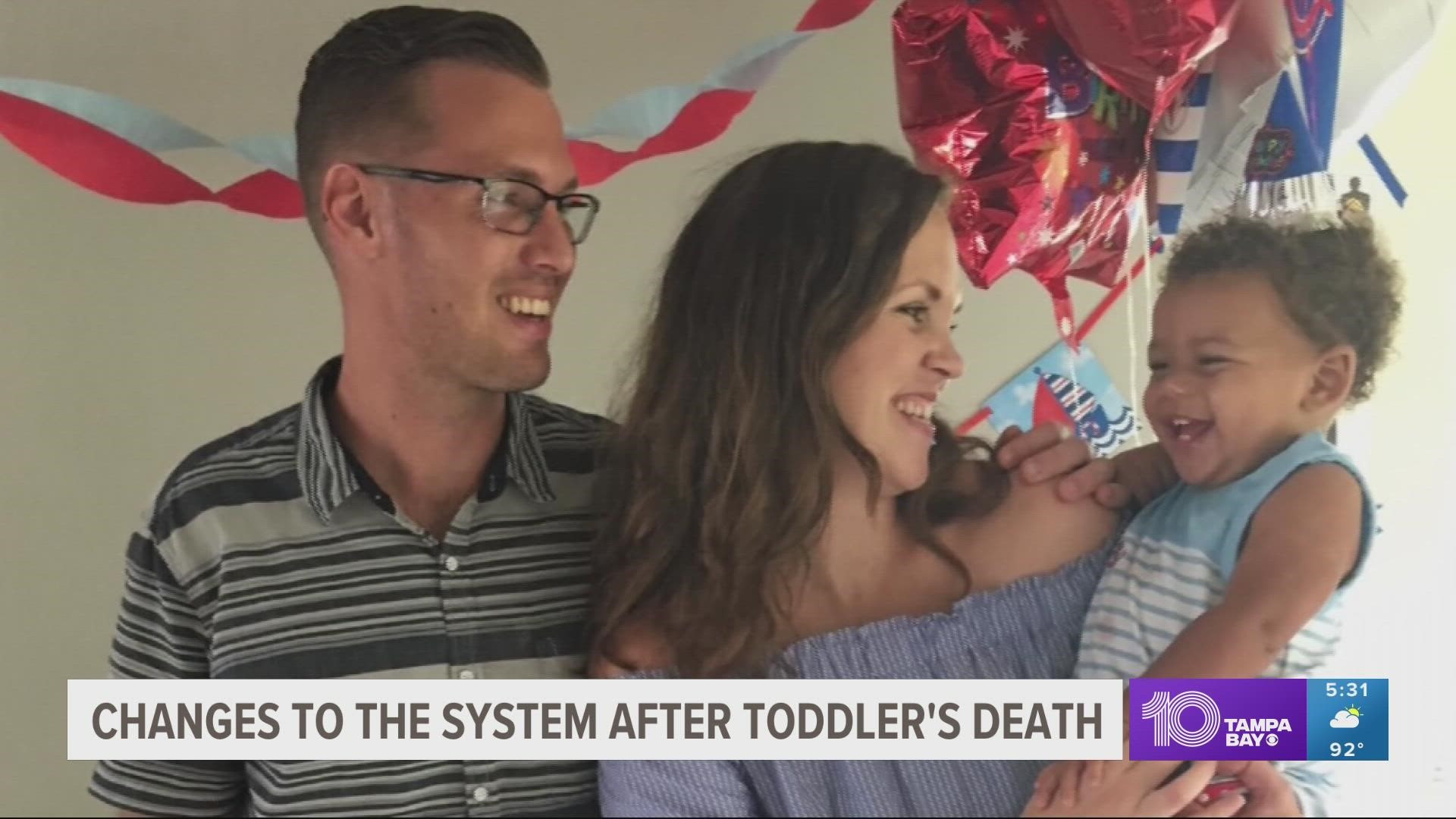LARGO, Fla. — It was a case that rocked the Tampa Bay region. Four years ago, 2-year-old Jordan Belliveau was found dead in a Largo park.
The autopsy report showed a violent end for toddler who spent the majority of his life in Florida's child welfare system.
Belliveau died from head trauma and seizures allegedly caused by his mother. An AMBER Alert was issued by police before prosecutors say his mother lied about his disappearance. His body was later found in the woods partially underwater.
In 2020, his mother, Charisse Stinson plead guilty to second-degree murder and she was sentenced to 50 years in prison.
Stinson gave birth to a baby girl in the months following Jordan's death. Belliveau's former foster parents who had been hoping to adopt him before he was returned to his biological mother ended up adopting the baby girl Stinson delivered while in prison.
Jordan's Law was also passed in 2020 aimed at revamping the child welfare system in Florida.
The bill which went into effect on July 1, 2020, set to accomplish the three following items:
- Reduce the caseload: The new law would slash caseloads from 30 to 15 per case manager to give each individual the ability to increase their attention per child.
- Streamline communication: Creating a system that cultivates shared data and information between law enforcement agencies and child welfare organizations is supposed to close the gap and streamline critical information about caregivers.
- Increase training: Requiring special training for parents, caseworkers, and law enforcement to better recognize the warning signs of head trauma.
Are children better off today?
In recent months, 10 Tampa Bay has covered issues within the foster care system including a criminal investigation into whether a child welfare agency neglected children in Pinellas County.
A former child protective investigator was arrested in Pasco for falsifying reports.
Four years after Belliveau's death and two years since Jordan's Law was passed, are children in Florida's system better off today?
Mike Carroll spent 29 years working for DCF and five as the former Secretary of the Florida Department of Children and Families. He's optimistic about the state of the child welfare system in Florida.
"I didn’t feel that way last year," said Carroll who now works at Lutheran Services.
Carroll said the new money dedicated to the system through the state's 2021 legislative budget has had an immediate impact on hiring quality case managers.
"What they did last year was transformative," Carroll said. "They put $200 million into the system. That’s the first time ever, in particular, Circuit Six, which is Pinellas and [Circuit] 13 in Tampa."
Carroll says Jordan's Law was well intended but it couldn't be truly executed without funding.
"Particularly in the Tampa Bay area, our caseloads were more in the range of 40 and 50 cases because we couldn’t fill our positions," Carroll said.
Jordan's Law had aimed to cut caseloads from 30 to 15. Agencies in the Tampa Bay area still aren't there yet.
"Right now that’s a big challenge on both sides of Tampa Bay," Robin Rosenberg said. She is the Deputy Director of Florida’s Children First, a statewide advocacy organization.
Rosenberg said it comes back to relationships with families and nurturing children every step of the way.
"The best strategy to prevent child abuse and neglect is to provide children with Safe, Stable, Nurturing Relationships (SNNR)," Rosenberg said.
By focusing on more transparency and communication with individual families and children, case managers can offer individualized resources and Florida has a better chance of success stories.
"We used to treat children like potted plants. We’d move them from here to there based on what was convenient for us," Rosenberg said.

